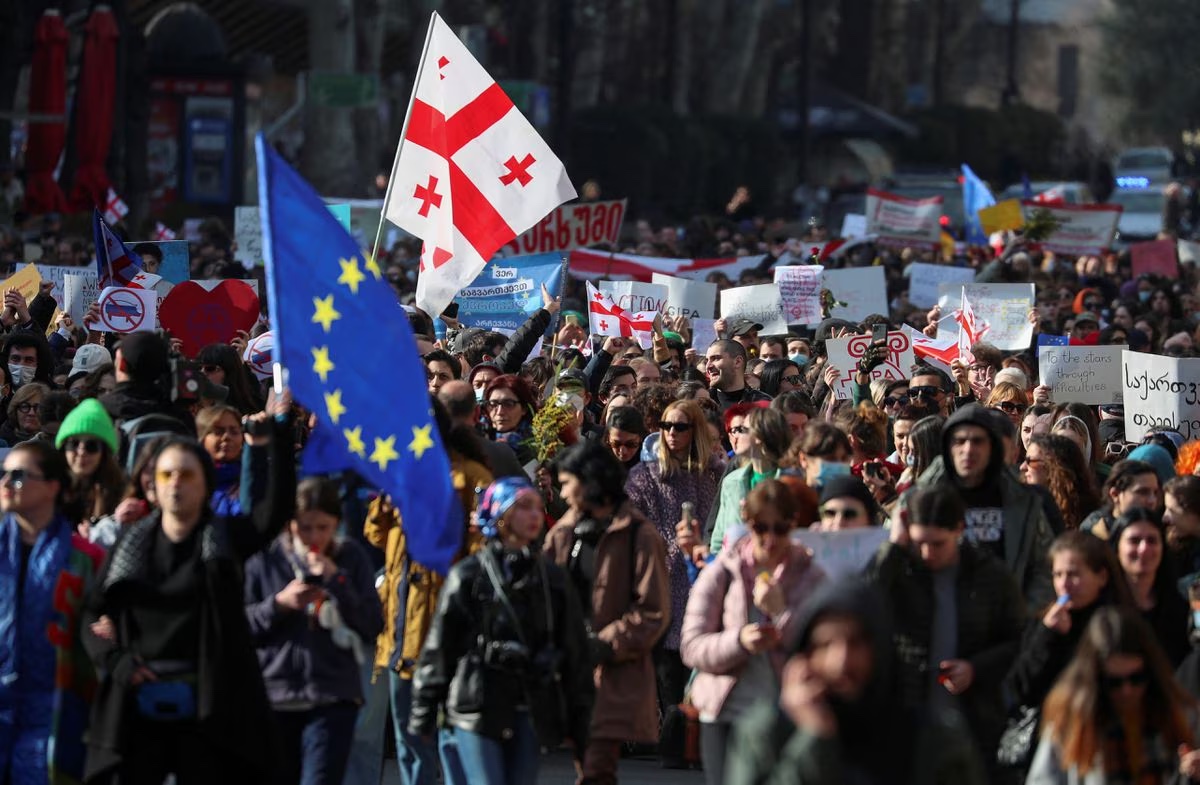TBILISI, (Reuters) – Georgia’s ruling party said today it was dropping a bill on “foreign agents” after two nights of violent protests against what opponents said was a Russian-inspired authoritarian shift that imperilled hopes of the country joining the European Union.
The Georgian Dream ruling party said in a statement it would “unconditionally withdraw the bill we supported, without any reservations”. It cited the need to reduce “confrontation” in society, while also denouncing “lies” told about the bill by the “radical opposition”.
However, opposition leaders said the protests would resume at 7 p.m. (1500 GMT). Giga Lemonjala, a representative of the Droa party, said they were demanding that the government formally denounce the bill and release all those detained during the protests.
“The protest is not just about the bill, but about the Russian nature of the Georgian Dream. There is no trust towards them or their word,” Droa founder Helen Khoshtaria said on Twitter.
The Black Sea country of 3.7 million people has seen frequent political upheaval since winning independence from the Soviet Union in 1991, including a peaceful “Rose Revolution” in 2003 and a calamitous war against Russia five years later.
The bill would have required Georgian organisations receiving more than 20% of their funding from abroad to register as “foreign agents” or face fines.
‘FOREIGN INFLUENCE’
Government officials said the proposals were necessary to root out “foreign influence” and “spies” from Georgia’s political scene, arguing that Georgians had the right to know who funds non-government organisations working in the country.
The opposition said it was a local version of a Russian law that President Vladimir Putin has used to crush dissent for more than a decade.
The European Union’s delegation to Georgia welcomed the decision to withdraw the bill, writing on Twitter: “We encourage all political leaders in Georgia to resume pro-EU reforms, in an inclusive & constructive way.”
Parliament gave the draft law initial approval on Tuesday but tens of thousands of protesters then gathered outside parliament, some throwing petrol bombs, stones and plastic bottles at police. The authorities said dozens were detained.
Police used tear gas, water cannon and stun grenades to break up a second night of protests on Wednesday.
The bill has deepened a rift between Georgian Dream, which has a parliamentary majority, and President Salome Zourabichvili, a pro-European who has moved away from the party since being elected with its support in 2018.
Zourabichvili had said she would veto the bill, though parliament can override her.
Georgia’s opposition has long criticised Georgian Dream for what it sees as excessive closeness to Moscow. Russia has backed separatists in the breakaway Georgian regions of Abkhazia and South Ossetia.
The bill had angered supporters of Georgian membership of the EU, after officials in Brussels condemned the draft law and said it would complicate Tbilisi’s path to joining the bloc.
Last year, Brussels declined to grant Georgia EU candidate status alongside Moldova and Ukraine, citing stalled political and judicial reforms.

